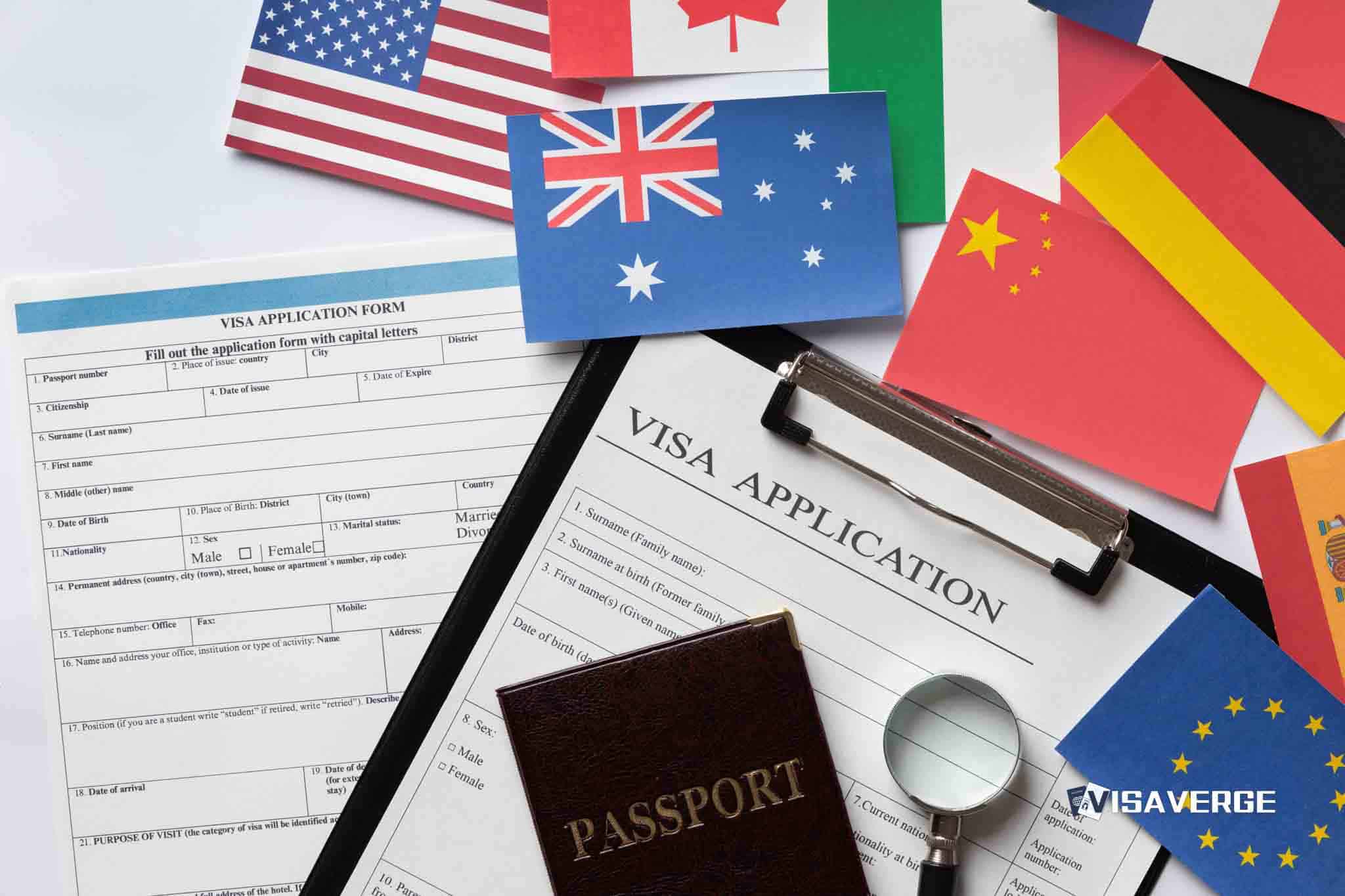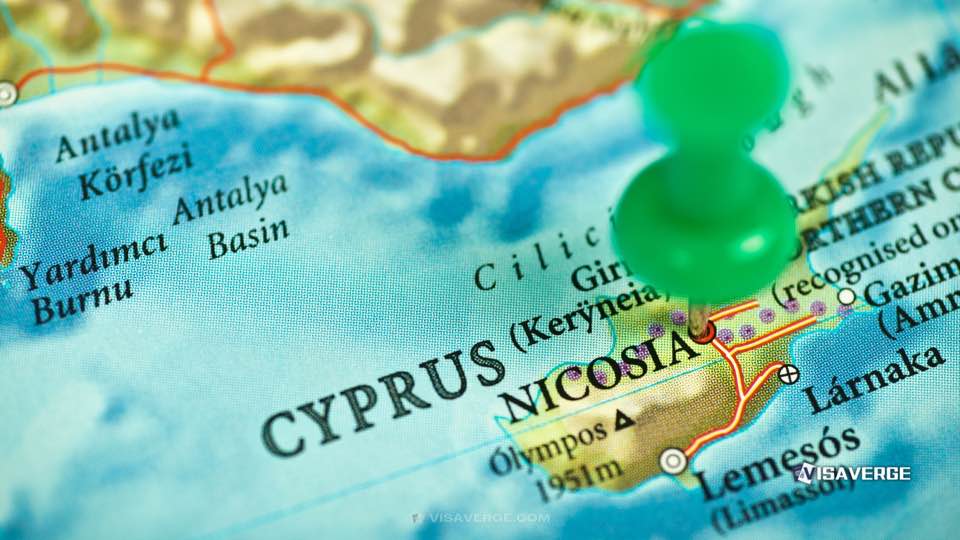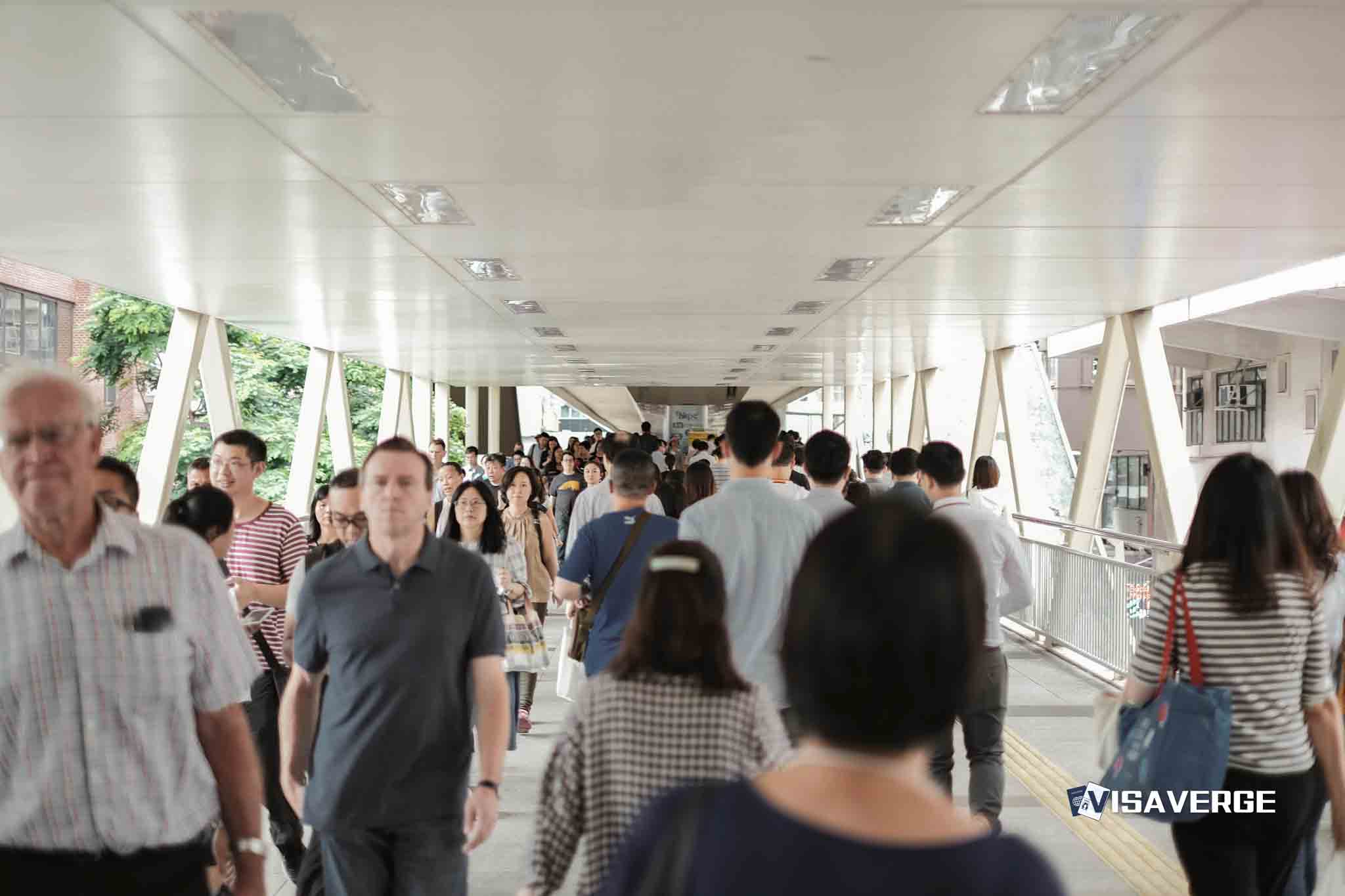(UNITED STATES) J-1 visa stamp appointments at U.S. consulates are continuing during the 2025 government shutdown, according to consular guidance shared with program sponsors. These fee-funded services are not cancelled by a shutdown, though applicants should plan for slower processing if the closure is prolonged. Earlier in 2025, U.S. consulates briefly paused new F-1, M-1, and J-1 visa interview scheduling due to new social media vetting steps, but that pause ended on June 19, 2025. The current operating status reflects normal fee-based visa services with possible delays, not shutdown-driven closures.
Core message for exchange visitors

A valid, unexpired J-1 visa stamp remains usable for travel and return. Travelers with visas already in their passports can depart and re-enter the United States as usual during a government shutdown, provided their visa and program status remain valid at the time of re-entry. This aligns with how the State Department handles paid consular services during funding gaps and matches the long-standing practice of keeping visa operations running on collected fees.
By contrast, those inside the country without a valid J-1 visa stamp should avoid international travel unless they qualify for Automatic Visa Revalidation, a narrow rule that permits short trips to Canada or Mexico in limited cases. The State Department explains the conditions for this exception here: Automatic Revalidation. If a traveler cannot use that rule, they would need to secure a new visa appointment at a U.S. consulate abroad before returning, which may be hard to arrange on short notice.
How shutdowns typically affect immigration services
According to analysis by VisaVerge.com, fee-funded immigration services typically continue during shutdowns, while some related programs can pause. That split matters for timing:
- The State Department’s consular sections and U.S. Citizenship and Immigration Services (USCIS) largely rely on fees, so they often keep working.
- Parts of the Department of Labor that handle immigration filings may stop during a shutdown, which can cause indirect slowdowns on cases that require labor steps.
- None of the above is the same as a blanket closure of J-1 visa stamp appointments at U.S. consulates.
Current Operations During Shutdown
- J-1 visa stamping continues: Appointments at U.S. consulates are active. No shutdown-related cancellations have been ordered.
- Expect possible delays: If the shutdown continues, backlogs can grow. Security reviews, local staffing limits, or high demand may add wait time.
- Earlier 2025 pause is over: The temporary hold on scheduling new F-1, M-1, and J-1 interviews tied to social media vetting changes ended by June 19, 2025. Consulates resumed scheduling after that date.
- Program-by-program impacts vary: While visa services continue, some items that depend on annual appropriations may pause. Examples include parts of E-Verify and some J-1 waiver functions. Those impacts do not cancel visa interviews but can affect related timelines.
The Department of Labor’s shutdown posture has a ripple effect. When labor systems stop, employers and attorneys can face filing delays. That can slow some petition paths or downstream steps for future travel. For most J-1 exchange visitors, the immediate question is whether they can attend a consular appointment or travel on a valid visa. The answer today: appointments continue and valid visa stamps remain usable.
Travel and Re-Entry Guidance
The key travel rules during a government shutdown are practical and time-tested:
- If you hold a valid, unexpired J-1 visa stamp, you can travel and come back. Be sure your passport and program dates remain valid for your return.
- If your J-1 visa stamp has expired and you plan to travel, check if you qualify for Automatic Visa Revalidation for a short trip to Canada or Mexico. If not, you will need a new visa stamp at a U.S. consulate before re-entry.
- If you do not have a visa stamp yet, avoid non-urgent travel abroad until your appointment is complete and the visa is issued.
- Monitor your U.S. consulate’s website and messages. Local posts may adjust schedules for reasons unrelated to a shutdown, such as security alerts, holidays, or staffing issues.
- Carry proof of program status. While not a substitute for a visa, up-to-date sponsor documents and confirmation of active participation can help during inspection.
Applicants should also remember that normal consular rules still apply. Security checks, document reviews, and interview availability do not change simply because Washington has a funding dispute. In some places, high demand has pushed appointment dates further out. In others, slots remain. Families should prepare for uneven conditions across posts and plan extra time where possible.
Background on the earlier pause
None of this should be confused with the short-lived pause earlier this year. That step, tied to new social media vetting measures, led many students and exchange visitors to see “no appointments available” notices for new bookings in May and early June. The pause ended by June 19, 2025, and U.S. consulates reopened slots. The current situation is different: visa services are open, though the pace may slow.
Guidance for program sponsors and applicants
For program sponsors, the focus is steady communication with travelers. Clear confirmation of appointment dates, realistic timelines, and guidance on travel risks can prevent last-minute problems.
For exchange visitors, the smartest plan is to:
- Avoid non-essential trips if you lack a valid visa stamp.
- Keep all documents current if you do travel.
- Confirm appointments and monitor consulate notices.
Practical steps applicants can take now:
- Check your visa expiration date before booking any travel.
- Confirm appointment details directly with the U.S. consulate where you’ll apply.
- Build in buffer time for possible delays in return travel.
- Stay in touch with your sponsor for updates on program status and any local changes at consular posts.
Important: If your situation involves Automatic Visa Revalidation, review the State Department guidance linked above and confirm you meet every condition before you book tickets.
Bottom line
- J-1 visa stamp appointments at U.S. consulates are not cancelled because of a government shutdown.
- Travelers with a valid stamp can re-enter the United States.
- Those without a valid stamp should stay put unless they qualify for the narrow revalidation rule, or they secure a new appointment and visa abroad.
As VisaVerge.com reports, planning ahead and allowing extra time remain the most reliable ways to avoid travel headaches during a shutdown. U.S. consulates will keep posting notices if local conditions change. Applicants should rely on official sources for the latest operating status and on their sponsors for case-specific advice.
Frequently Asked Questions
This Article in a Nutshell
During the 2025 U.S. government shutdown, J-1 visa stamp appointments at U.S. consulates remain active because consular services are fee-funded. Applicants with valid, unexpired J-1 stamps may travel abroad and re-enter the United States provided their visa and program status remain valid. Those without a valid stamp should avoid nonessential travel unless they meet Automatic Visa Revalidation conditions or can secure a new appointment abroad. A temporary scheduling pause for F-1, M-1 and J-1 interviews tied to social-media vetting ended on June 19, 2025. Sponsors should communicate clearly with participants, and travelers should confirm appointments, keep documents current and plan extra time for potential delays caused by security reviews, local staffing or high demand.













